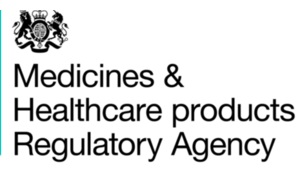
-
10th Jan 2017, 01:46 PM
#1
Consent - interpreting 'witness' in SI 2004 1031 Schedule 1 Part 1
Hello,
Might someone shed some light on the 'witness' referred to in schedule 1 part 3?
3.—(1) For the purposes of this Schedule, a person gives informed consent to take part, or that a subject is to take part, in a clinical trial only if his decision—
(a) is given freely after that person is informed of the nature, significance, implications and risks of the trial; and
(b) either—
(i) is evidenced in writing, dated and signed, or otherwise marked, by that person so as to indicate his consent, or
(ii) if the person is unable to sign or to mark a document so as to indicate his consent, is given orally in the presence of at least one witness and recorded in writing.
The presence of this provision indicates that there may be cases when a subject, not considered to be incapacitated, is unable to mark a document but clearly able to express informed consent. In such cases, who might the witness be? I understand the witness is not a legal representative, so are there any restrictions on who that witness might be? May they be a member of the research team for example?
-
11th Jan 2017, 05:23 PM
#2
Off the top of my head.
It might be a good starting place to ask what is the role of a witness and then you might be able to determine who can perform that role. ICH GCP E6 does have valuable information about witnesses.
Your Ethics Committee may be able to offer some help here.
The FDA states that the witness should witness the entire consent process not just the signing or marking of a consent form.
The Research Quality Association (RQA) answered a similar question on 31st May 2011. You might find the answer useful:- ICH GCP E6 section 1.26 states the impartial witness is ‘a person, who is independent of the trial, who cannot be unfairly influenced by people involved with the trial’. Therefore other subjects participating in the study should be excluded as impartial witnesses. Doctors or nurses from other departments (rather than the department that the study team work for) are suitable as impartial witnesses as long as they are not under direct supervision of the Principal Investigator or other members of the study team. Patients in the clinic or wards who do not participate in the study are acceptable, as long as they have had no previous experience of the trial (e.g. patient withdrawal) that may introduce some element of bias. In most cases the subject’s relative can be an impartial witness, but there has been some debate that relatives may not be impartial; if this is questioned then I would suggest a person with no relationship to the subject or the study would be the best option.
-
19th Jan 2017, 04:52 PM
#3
Thank you - very much appreciated.
 Posting Permissions
Posting Permissions
- You may not post new threads
- You may not post replies
- You may not post attachments
- You may not edit your posts
-
Forum Rules






 Reply With Quote
Reply With Quote